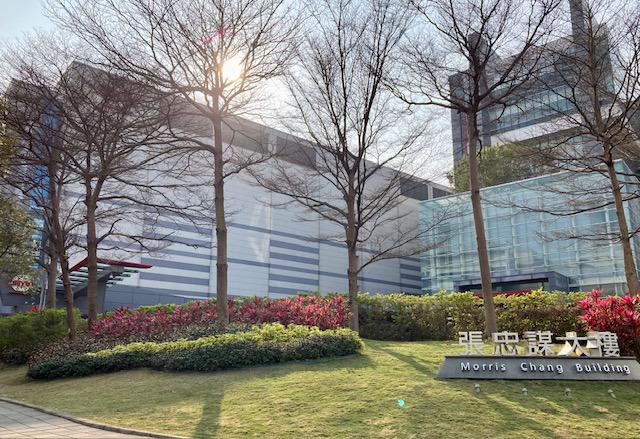National Yang Ming Chiao Tung University in Hsinchu, Taiwan, is one of the international partners where SUNY Oswego and Monroe Community College students and faculty will be able to make connections thanks to a new U.S. Department of State’s Increase and Diversify Education Abroad for U.S. Students grant.
SUNY Oswego, in partnership with Monroe Community College (MCC), recently received a federal grant to support study-abroad opportunities connected to the massive economic impact of Micron Technology building in Central New York.
The grant from the U.S. Department of State’s Increase and Diversify Education Abroad for U.S. Students (IDEAS) Program supports efforts to establish, expand and/or broaden American student mobility overseas. The project’s title is “Getting Ready for Micron: How a Rural-Serving Public Regional University and an Urban Community College in Upstate New York Will Prepare Students for Opportunities in the Global Semiconductor Industry.”
In support of the bipartisan 2022 CHIPS and Science Act, two consortium grants of $50,000 each were awarded to U.S. higher education institutions collaborating to build study-abroad capacity, programs, and resources to prepare U.S. students for careers in STEM, technical and/or vocational fields.
"The U.S. State Department's IDEAS grant program seeks to challenge institutions of higher education to innovate and expand the definition of what they mean by education abroad," said Joshua McKeown, SUNY Oswego’s associate provost for international education and programs.
"Even for a university like ours, where we have been successful at offering exceptional study-abroad opportunities for a long time, we are challenged to think differently, particularly in the Micron era we are now in,” McKeown noted. “Not every major has been represented well in our international programs, and not every destination has either. Focusing on STEM fields and developing targeted programs to East Asia, disciplines and relationships that SUNY Oswego has but not necessarily harnessed for this purpose, was challenging to conceive of and build support around. It's really an affirmation of so much that we have built, and I am enormously gratified that this came through for us and we can put our international expertise to work in this way."
McKeown said the project started during a visit to Taiwan to develop better relationships and partners.
“In between planning the trip and the event, the Micron announcement was happening,” McKeown said. “Taiwan is currently the world’s most advanced semiconductor producer. With those two developments coming together, I thought SUNY Oswego – with the partnerships we built in Taiwan and South Korea – could play a role.”
With the jumpstart of a vibrant semiconductor industry in the region, and connections to the larger world, McKeown foresaw academic opportunities particularly for electrical and computer engineering, computer science, technology education and other SUNY Oswego programs.
“The IDEAS grant is not new, but it’s first time it had a special category for building study abroad capacity on the CHIPS and Science Act,” McKeown said. “I saw this is the connection we can make. Through the SUNY network, I was able to identify Monroe Community College as an excellent partner.”
Building opportunities
Engineering faculty were very receptive, and MCC –- an urban university in Rochester –- has a tradition of preparing underrepresented students for success in four-year schools like SUNY Oswego, industry and beyond.
The grant will build opportunities for faculty members from SUNY Oswego and MCC to travel and create partnerships in Taiwan and Korea. McKeown said faculty selection will take place soon for delegations in 2025-26 to organically construct academic abroad opportunities that make sense.
“This could be placements in chip fabs in Taiwan and South Korea, two of the top countries in this industry. “It could be collaborations. It could be COIL (Collaborative Online International Learning) courses with international institutions. They could involve virtual clean rooms. We also could construct shorter faculty-led programs that can bring exposure.”
STEM and engineering programs are underrepresented in study abroad in general, McKeown noted, and this is one very logical way to provide students more opportunities to broaden their horizons.
“We don’t typically see a lot of engineers go abroad, and the STEM majors in general are trickier to find the right fit through research opportunities,” McKeown said. “It’s a good match because opportunities in Taiwan and South Korea can be utilized, while these disciplines are underserved.”
This is an example of “strategic and purposeful” planning as connected to President Peter O. Nwosu’s Vision 4040, McKeown noted. “I think it’s the direction that we need to be going in,” McKeown said. “I view the Micron investment in Central New York as something that will truly transform the region.”
Micron’s planned investment of $100 billion in the region over the next 20 years represents the largest economic development project in the region’s history. Micron’s megafab chip plant, located in Clay and just three miles from the Oswego County line, represents a catalyst for transformational renewal in the Central New York region and across New York state.
McKeown was happy to find very supportive partners on campus, including Assistant Vice President for Workforce Innovation and External Relations Kristi Eck and Associate Provost for Research Development and Administration William Bowers. “The university is really dedicated to working with this Micron opportunity and finding ways to connect with the wider world,” McKeown said.
“As an educator and as a citizen, this is my contribution to the Micron project,” McKeown said. “My lane is opening doors and building bridges. Students will interact with workers, suppliers and personnel from those countries. They are going to be more ready for it for Micron and all of the other opportunities to come.”
Since 2016, the IDEAS Program has awarded 216 grants to 205 institutions in 49 U.S. states and territories to establish, expand, and broaden their U.S. study abroad programs in over 95 countries across all world regions. In addition to the IDEAS grant competition, the program also offers opportunities for international educators at U.S. colleges and universities to participate in free virtual and in-person study abroad capacity-building activities.




